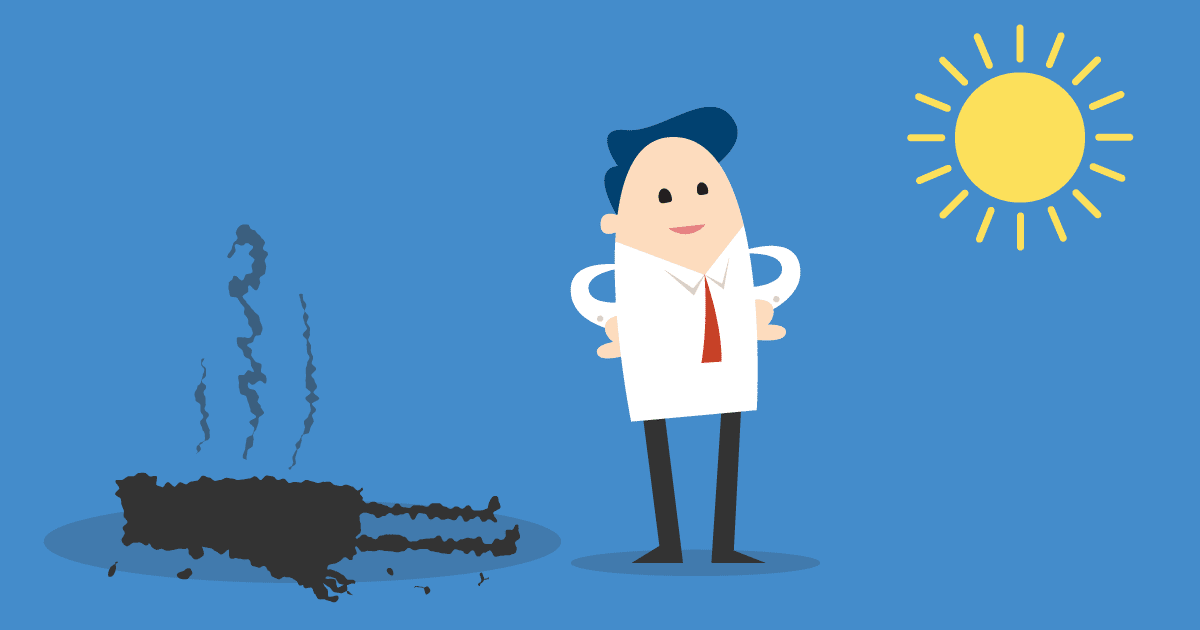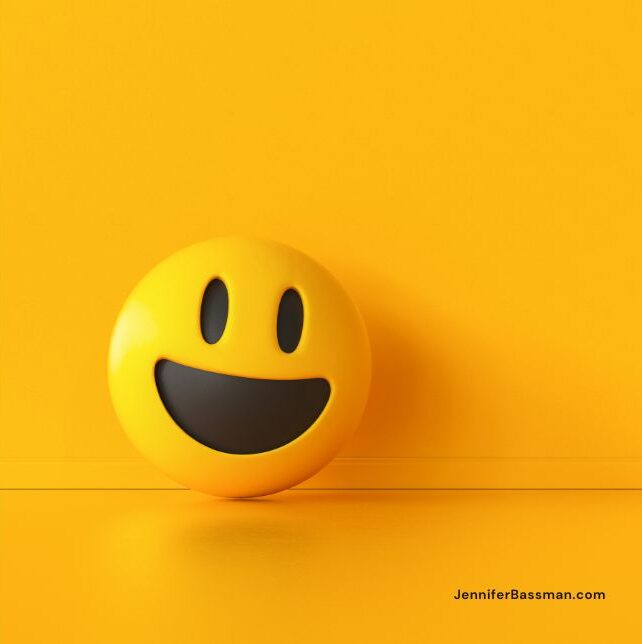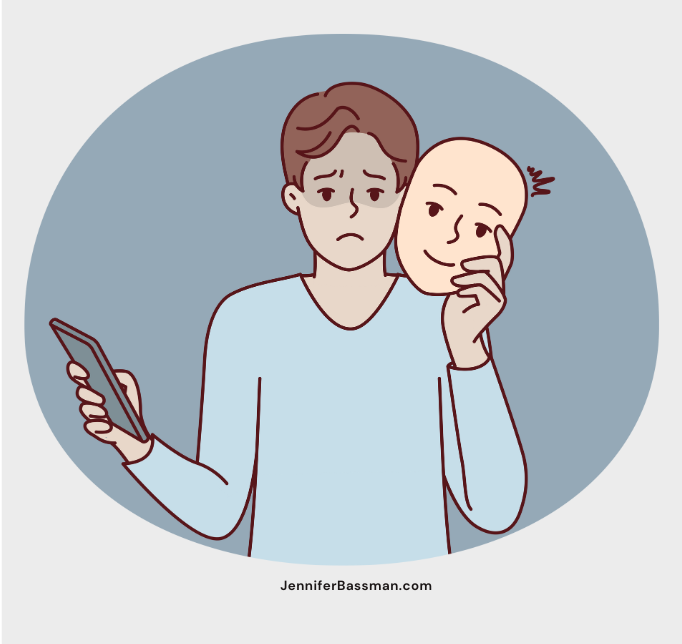Burnout recovery doesn’t happen in a nice, neat straight line.
There are ups and downs, ins and outs, good days and bad days, one step forward then two steps back. It’s kind of like a country music song.
“Oh burnout! You leave me in tears, spillin’ my beer…”
Ahem… back to the rocky road of burnout recovery.
Today, I want to answer two questions:
- What does burnout recovery look like?
- How do you know if you are actually recovering?
Typically, I don’t like to be told what to do. But, when it comes to healing, I don’t want the run-around – I want someone to give me the right answers so I get better faster.
Except, there are no right answers or short-cuts when it comes to healing any kind of injury or pain.
What someone like me – a burnout and boundaries expert – can do is point you in a direction of solutions that have been successful to make your recovery journey easier.
The problem with pain of any kind is that it is complicated.
Burnout recovery isn’t any different.
Here are just a handful of factors that affect your burnout recovery process:
- How long you have been burned out
- How you respond to stress management
- Tackling the (right) root cause of your burnout
- Revamping your mindset
- Picking the best recovery strategy available.
There are hundreds of things that will affect how and how long it takes you to recover.
What Does Burnout Recovery Look Like?
I think a lot of people imagine that burnout recovery looks like a lot of napping and sleeping. And, when they take more naps and somehow get more sleep, but their burnout doesn’t go away – they are surprised.
I can see why you would make that assumption. The internet is full of advice telling you that sleep cures everything and there are plenty of “experts” that read a couple of those articles and now think they hold the keys to your recovery.
Since your burnout pain is complicated, your burnout recovery is going to be a bit complex. Yes, you will need to make sure you get proper sleep and rest, but you also need to:
- Pinpoint the root cause of your burnout and correct that behavior
- Learn how your body responds to stress
- Learn new stress management skills
- Create a different mindset around your work habits
- Build resilience
- Make some changes to your environment
Your burnout recovery will look like Self-Awareness Camp. You need to get to know yourself so that you don’t ignore the signals again that burned you out.
Building self-awareness is tricky. It’s more than learning what you like or don’t like, or knowing when you’ve had enough. It’s also learning how you operate on a deeper level.
What does it look like when stress starts to build up?
How effective are you at managing the world around you?
What are your priorities? (A shocking number of us cannot answer this question…)
You will spend a lot of time testing your honesty and building your courage.
How Will You Know If Burnout Recovery Is Actually Working?
If you thought stress was a sneaky little devil, so is your recovery process.
I have talked in the past about stress being a silent build-up. Your body adapts to higher levels of stress without much conscious input from you. You only notice that the stress is “too much” when your typical coping mechanisms no longer work.
Recovery from burnout is similar. You begin by employing a new habit or two, and maybe work on adjusting your mindset. After a few weeks, you check back in with yourself and doesn’t seem like anything has changed. BUT, what you may not notice at the time is that you are inching toward less stressful responses to stress triggers.
Then, one day, you notice that stress trigger… isn’t so triggering. O.M.G.! The recovery is working!
You take a victory lap around your office, while telling yourself you are The Master Of Your Stress. You pump your fist in air a few times, twirl in your office chair a couple of times, and are tempted to call up your most frustrating client and tell them “Try and frustrate me today. I dare you!” (Okay, maybe this is what I did.)
Except that a few days later, the trigger appears again. And, you fall for it and get stressed out.
This is not a sign that your recovery isn’t working. It is a sign that:
- You have built a stronger sense of self-awareness because you noticed the trigger. (This in itself is a victory!)
- You know how to interrupt your stress response just by noticing the trigger.
- Stress is sneaky. It’s looking for new entry points. It found one.
During burnout recovery your body and your brain are changing. You are going to feel different and your perspective will change because you are building a self-awareness and resilience your body is trying to trust. Naturally, you doubt these changes because you already drove your body into pit once. What if you do it again?
Burnout Recovery Feels Like A Bit of a Tug-of-War
If I could insulate you from new challenges and bumps in the road with some bubble wrap, I would.
Everyday is unpredictable and the universe will do its best to trip you up. At some point in your recovery process, you will show up with a different attitude about this that isn’t negative, but is more matter-of-fact. And, you’ll know that this unpredictability doesn’t mean you have to bend to its will. Rather, you’ve created boundaries and respond with a solution-oriented mindset.
Some days you will feel better than others. It doesn’t mean that your bad days are recovery failures. Not even close. Your mind and body are dynamic and always changing. So, you need to respect that some days it will have an easier time adapting to the world around you and other days – not so much.
As long as your healing process is trending upward overall, this means you are making more good choices for your recovery journey than bad.
I am currently creating a burnout recovery course based on my Burnout Recovery Method. One of my marketing struggles is that I can’t tell you that it will be easy – which is what you want to hear. (Believe me, it’s what I want to tell you.)
What I am built is method that makes it easier to identify an effective burnout recovery path.
I will guide you down a path to recovery that is easier because I am taking out a lot of guesswork and steering you away from myths and inaccurate information. This is easier.
The Take-Away From Today’s Message
The take-away isn’t an advertisement for my upcoming course. (But, seriously, you won’t be sorry you know about it now.)
The take-away: your burnout recovery journey is going to be rocky, however, you aren’t going to be alone and you have just taken a big step in your self-awareness journey by adding this knowledge to your database.
Share With A Friend
If you know someone who would be interested in this blog post, share it!






